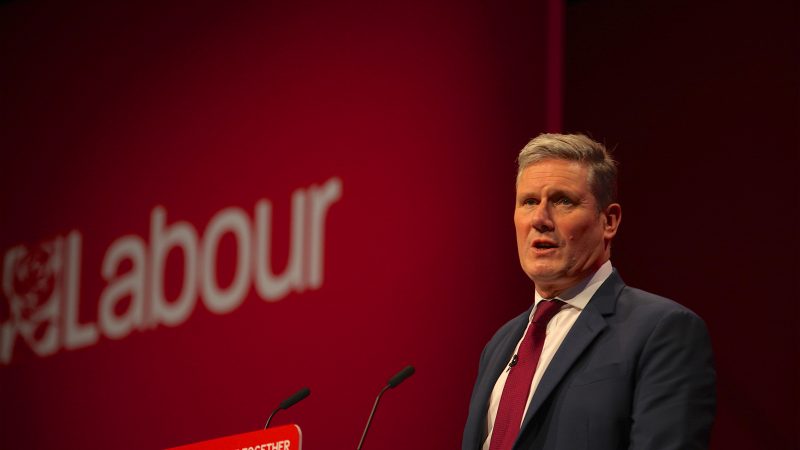
In 1995, at a key moment in the creation of New Labour, Tony Blair gave a speech to the Fabian Society to mark the 50th anniversary of Clement Attlee’s 1945 victory. In his speech, Blair embedded New Labour within the work of philosophers such as JA Hobson and LT Hobhouse, pioneers of early 20th century New Liberalism.
The purpose behind Blair’s embrace was to reunite liberal and socialist traditions, a modern ‘LibLabism’ that earlier in the century had resulted in Labour’s first MPs in 1906 and the common campaigns of 1910. For Blair, the objective was a new progressive alliance to avoid a repeat of the Conservative domination of the 20th century and to build an anti-Tory coalition to win and retain power.
Labour’s 1992 defeat meant many modernisers remained fearful that the party might never again secure an outright victory. After that defeat, Blair had begun to meet privately with Alliance leader Paddy Ashdown to explore the future reconstruction of the left. Once leader, he privately stated to Ashdown that his preferred option was to include Lib Dem representatives in his government.
The landslide of 1997 removed the electoral imperative behind such changes. Yet Blair offered Ashdown membership of a joint cabinet committee to consider constitutional change, chaired by Blair himself, with equal representation from the two parties. Moreover, in December 1997, Blair established the Jenkins committee to recommend alternatives to the voting system.
Labour’s pluralist, liberal tradition has a rich history
The long-standing liberal left pluralist tradition within the party influenced the early phase of New Labour. There are three basic elements to this tradition.
First, a focus on questions of legal equality best expressed in the five decades of equalities legislation enacted by successive Labour governments from the 1960s culminating in the 2010 Equality Act.
Second, the promotion of human rights derived from post-war concerns to defend and enhance human dignity and freedom given wartime experience of genocide and totalitarianism, reflected much later in the 1998 Human Rights Act.
Third, confronting questions of constitutional and electoral reform to challenge the power of the state in the name of liberty and to advance citizenship. Initiatives such as reform of the House of Lords, devolution and freedom of information – all under the Blair government – reflect this emphasis.
This pluralist, liberal tradition has a rich history. It was on display with the pioneering social reforms of the 1960s under the guidance of Roy Jenkins. In the 1970s and 1980s, campaigners such as Tony Benn referenced the contribution of the Diggers, Levellers and Chartists when making the case for modern democratic and constitutional renewal. In the 1980s and 1990s, Charter 88 attracted widespread support from across the liberal, social democratic and socialist left. Above all, it can be identified in the embrace of human rights and constitutional reform by John Smith as Labour leader. In his first week as Prime Minister on July 3rd 2007, Gordon Brown argued for a written constitution.
This liberal plural tradition is under attack in the modern party
Today, this liberal plural tradition is under attack. Neal Lawson, a member for 44 years, is one of the most high profile advocates of pluralism in Labour. Neal is Labour through and through. In all the 30 years I have known him, he has continually demonstrated the Labour values that our party was built on: respect, tolerance, compassion and, importantly, pluralism.
The soft left has historically been the group most committed to political and constitutional reform, to questions of liberty and freedom in their understanding of socialist justice. Compass, the think tank Neal leads, is the organisation most associated with upholding this tradition. Neal must have been targeted and threatened with expulsion for this reason.
My point is that what we are witnessing is not just an attack on Neal or Compass or the soft left. It is an attack on a liberal and pluralist tradition of justice pursued through democratic, constitutional and political reform and the pursuit of individual and human rights.
The right-wing faction who appear to be running the party, singling out Neal and deciding who is and is not a candidate or member come from a very different tradition – colder, more authoritarian and utilitarian, in which politics is all about state capture and factional control. Different political traditions have always coexisted around Labour. Every Labour leader has accepted this cohabitation.
Factionalism threatens our ability to challenge the status quo
Today, many see Starmerism as a New Labour restoration project. I don’t. New Labour had a liberal quality which is under threat in the modern party. The enduring features of New Labour’s first term – the Good Friday Agreement, devolution, new legal rights to equality, the Human Rights Act, freedom of information – show its liberal, plural quality.
After the next election one small, Leninist section of one party has no hope of tackling the huge issues facing our country, whether on climate, inequality or rebuilding our crumbling public services.
The threat to our party, and by extension the country, from this factionalism cannot be overstated. This is much bigger than Neal Lawson. It is about the character of the modern party and upholding the liberal, pluralist tradition within Labour. Neal is threatened, but something much more significant is at stake: our capacity to democratically challenge the existing social and economic order.



More from LabourList
NEC member warns of CLP ‘resentment’ over twinning and cut-off IT access
‘A black hole, CQC woes, prison crisis: Tories get taste of their own medicine’
Labour NEC elections: ‘Councillors must have a voice and be listened to’